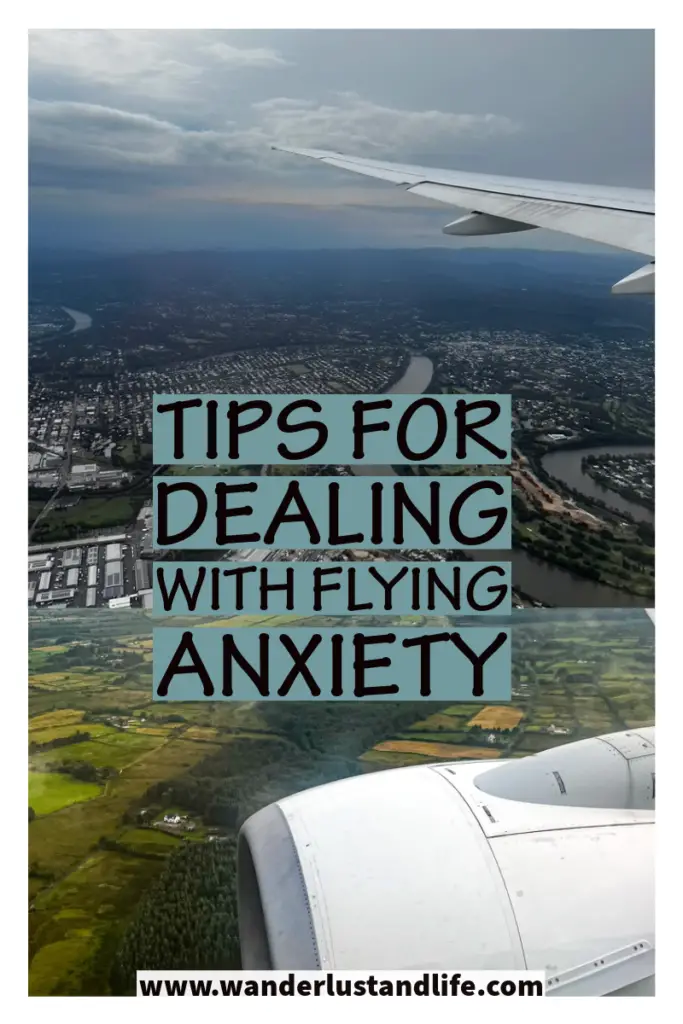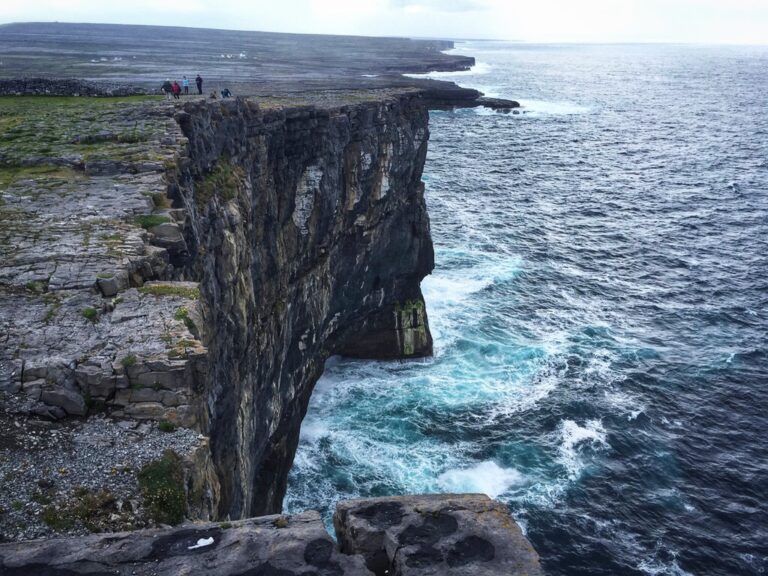15 Essential tips if you are a nervous flyer – from someone who got through it
Hi, my name is Lizzie and I am a nervous flyer. Or at least I was.
I know that is probably a weird thing for a travel blogger to say, but it is true. At my worst I would usually spend the majority of my flights crying/hyperventilating, staring at the aircraft wings hoping they don’t fall off, and watching the cabin crew to try and determine by their facial expressions if we are going to crash or not.
Flying anxiety is common, and the more I fly the more confident I become. But it isn’t something that happened overnight. After several flights in tears, a fear of flying course, and a missed flight due to fear, I’m sharing my top tips for flying anxiety.
Contents
- Why I’m sharing these tips for nervous flyers
- So what are the essential tips for nervous flyers?
- 1. Remember turbulence is safe
- 2. The plane is not moving as much as you think it is
- 3. Have something to hold in case of turbulence
- 4. Tell cabin crew that you are a nervous flyer
- 5. Bring something on the plane that will distract you
- 6. Don’t forget to breathe
- 7. Imagine you are somewhere else
- 8. Get up and walk around
- 9. Control your catastrophising
- 10. Know your facts
- 11. Don’t read the news
- 11. Think about your pilot
- 12. Concentrate on your destination
- 13. Do a course
- 14. Speak to your doctor
- 15. Just do it
- Can you ever stop being a nervous flyer?
Why I’m sharing these tips for nervous flyers
These tips are some of the things that worked for me especially when I was at my worst when it came to flying anxiety.
I know what some of you might be thinking. You can’t be that much of a nervous flyer if you travel a lot. And that is the unfortunate thing. For me, travelling is where I get most of my joy. I love that excitement of arriving in a new city, I love learning, and I love trying new foods. I love the thrill of it all, and the idea that when you are in a new city anything could happen.
So despite the crippling flying anxiety, it’s something that I have forced myself to push through. Otherwise I would be depriving myself of the joy that travel brings me.
So I want to share some of the tips that have got me through some of my darkest days with flying anxiety.
So what are the essential tips for nervous flyers?
I’m glad you asked. Let’s go through some of the tips and tricks I have picked up along the way when it comes to flying.
I should add, that I’m not a professional, so use this advice with caution. Everyone is different, and these tips may or may not work for you. At the very least I hope that this article gives you some comfort in the fact you are not alone in your flying anxiety. And you can get over it, or at least become more confident. Please also note that if this is something you are really worried about and is impacting your life you should absolutely see a professional.
1. Remember turbulence is safe
When I was at the height of my flying anxiety, the thing that really bothered me the most was turbulence. So much so, I remember being on a flight from Singapore to London when we hit pretty bad turbulence not long after takeoff.
I thought the plane was dropping thousands of feet in the air. I was terrified. Cabin Crew were told to sit down, and I was on the verge of tears. During a particularly big bump, I instinctively grabbed the leg of the man next to me and squeezed hard. We made eye contact, I apologised, and felt embarrassed once the bumps were over. But in that moment I genuinely feared for my life.
So what helps me with turbulence now? I constantly remind myself that turbulence is safe. You just don’t hear about planes crashing because of turbulence. Yes people can be injured, which is why cabin crew need to sit down, but that is because things can fall, and you can easily loose your footing.
You know those times when you don’t realise there is a step somewhere when you are walking, and you kind of loose your balance for a second. That’s a bit like turbulence in my mind. You aren’t falling very far but it’s easy for us as humans to become disorientated.
I used to read so many articles about turbulence. Once you remove the emotion and the fear from the story what do you have? People boarded a plane. It got bumpy. A coffee was spilt. Someone lost their footing. The turbulence ended. The plane eventually landed. Everyone went on with their lives. That’s a boring story that doesn’t sell. Do you know what does sell? Fear and emotion.
2. The plane is not moving as much as you think it is
When I was a kid, I remember getting into such a panic when the pilot would turn the plane. I’d constantly think we were about to tip over and somersault somewhere over the ocean. The thing that it turned out was lying to me was my brain and my inner ear.
The aircraft is not moving half as much as you think it is. Sometimes when we have hit turbulence I have imagined the aircraft dropping 10 stories. Or when we takeoff I feel like the plane is shaking so much that it’s going to fall apart. Turns out these things are not true.
Your inner ear tends to play tricks on you, as humans are supposed to be ground dwelling creatures. Our senses become distorted and this can make you think you are falling thousands of feet when in reality it might only be an inch.
One thing that often grounds me is paying that little bit extra for a window seat. I find this gives my brain a bit more of an understanding of what is happening. If I can physically see us taking off out the window this helps me to understand why the plane is shaking. A seat over the wing is also more stable, so this is a good spot for a nervous flyer.
3. Have something to hold in case of turbulence
Here is something that I now recommend to any nervous flyer. Have something to hold onto and squeeze in case of turbulence.
A few years ago I was on a Swiss Air flight over the Atlantic heading to Chicago. We hit turbulence, and I panicked. So much so that a flight attendant noticed my obvious distress. She gave me a soft toy in the shape of a Swiss Air plane, instructing me to squeeze it when I felt nervous.
It actually really helped me because I could squeeze all my anxiety into this tiny toy. It also made me feel like I had something stable to hold on to.
4. Tell cabin crew that you are a nervous flyer
Another tip that has worked wonders for me is talking to cabin crew. This has probably been my biggest support, and would now recommend this to any nervous flyer.
You don’t have to make a big scene, but even just a quick mention that you are a nervous flyer to cabin crew as your board is really beneficial. In fact for a while there it was something I did routinely.
If cabin crew know you are a nervous flyer they will check on you during turbulence and explain what is happening and how normal it is. On that Swiss Air flight to Chicago that I mentioned previously, once cabin crew knew how nervous I was they would check on me.
As we started our descent the captain explained it would be a bumpy landing due to the weather in Chicago. One of the flight attendants then came over to me to explain what this meant, and that it was safe and normal. This extra bit of reassurance really helped me.
Sometimes you need that extra reassurance, especially from someone who flies all the time. That’s something to think about too. Cabin crew do so many flights and they are still here.
5. Bring something on the plane that will distract you
Distraction is a great technique, however as a nervous flyer I know it is easier said than done. I used to bring books on the plane thinking I would read them. Instead I would read the same sentence over and over again as my mind spiralled into these very intense thoughts.
These days I make an effort to bring my iPad, or have things downloaded on my iPhone. And I’m talking proper escapism in the form of trashy tv shows. I don’t tend to watch a lot of reality TV but it works wonders for me on flights. I’m so focused on the drama of what is going on that I quickly forget I’m on a plane.
Murder mysteries are another good one for me. I get so caught up in the whodunnit that I can momentarily forget I’m flying.
6. Don’t forget to breathe
This sounds really obvious but sometimes especially when we hit turbulence I forget to breathe. I then end up hyperventilating and stressing myself further. Actually take the time to concentrate on your breathing. Taking some deep breaths can help calm you down as well.
Take a look at some breathing exercises online. They are a really good to have as a backup in case you panic. At the very least while you are focusing on your breathing you will at least have a few seconds of relief from the intense panic.
7. Imagine you are somewhere else
For a nervous flyer I know that this is easier said than done. This does take a lot of practice in the art of mindfulness. Sometimes when I’m really freaking out, I close my eyes and imagine I’m on a bus or train. A lot of the sounds and movements can be similar, and it makes everything feel way less scary.
Another one of my best tips for nervous flyers is to bring a guided meditation with you on the plane. This can help you imagine you are somewhere else, like on a beach, or resting at home. Also those relaxing sounds like fireplace crackles, white noise, or soothing sounds of the ocean can also really help relax you.
8. Get up and walk around
This next one of my tips for nervous flyers might not be for everyone, but I find it does help me sometimes.
Once the seatbelt signs are off, I like to get up and walk around the plane. It’s especially a good thing to do after turbulence for me, or even after takeoff.
When fight or flight kicks in for a lot of nervous flyers you can feel like you need to move. This happens to me quite a bit, and walking around can make me feel more in control. I can visually see everyone getting on with their business which calms me down.
I sometimes use it on short haul flights as well to help pass the time. For example if the flight is 1.5 hours I will usually walk around and go to the bathroom about 40 minutes in. This distracts me, and then by the time I am back in my seat it is almost time for landing (sort of).
9. Control your catastrophising
The thing about being a nervous flyer is that I know exactly how to get myself wound up about it. My thoughts can go from pleasant to disastrous in a matter of seconds. I tend to catastrophise, and my thoughts just snowball from there.
Something that has helped with this is wearing a rubber band around my wrist. When my thoughts get really bad I snap the band to try and shock myself into thinking normally again. If you don’t want to end up with swollen wrists though, try to stop yourself when your thoughts start to wander. These days I tend to recognise when my thoughts start getting a little anxious, and I say the words, ‘You are catastrophising’ to ground myself.
I also start focussing on an object on the plane and describe it in my head. For example look at the seat in front of you. What colour is it? What kind of material is it made from? What about your tray table? Describe everything about it in your head. For me I start doing this the moment I start thinking intense and negative thoughts.
10. Know your facts
One thing that I would say to any nervous flyer is to be armed with the facts. Statistically, flying is the safest way to travel. I know this, and have read this thousands of times. When my thoughts start racing I often try to remind myself of this.
There are thousands of flights taking off and landing every day. They don’t all crash, in fact air accidents are so rare, which is something to bear in mind.
11. Don’t read the news
I know we all have that compulsion especially when you are a nervous flyer to read stories about flying. If I’m scanning through the news and see a headline “near miss at Manchester Airport”, I’ll automatically read it and scrutinise over it. Save yourself the torment and just don’t.
Newspapers are designed to sell stories and the best way to do this is through fear. No one wants to know about the ten thousand flights that landed safely. What makes news is that one flight that got a little bumpy and the passengers were upset. Passengers are interviewed and their recall their traumatic experience in detail. But what actually happened? Usually, a plane takes off, has a few bumps, and then lands. I mentioned this before but if you cut the emotion and fear out of the stories that is what you get.
Journalists are not pilots, or experts on flying. But they are experts on sensationalising the smallest things. Remember that the next time you read an article about a flight that made an emergency landing. Most of the time they land safely without incident. Remember fear sells papers!
11. Think about your pilot
Sometimes when I fly I like to think about the pilot. Not in a weird way, but I try and humanise them.
Pilots have family and friends too. They want to go home just as much as you do. There are so many pilots in this world, and they wouldn’t put themselves in complete danger day after day. Which kind of makes me think, flying isn’t that dangerous. No more than driving a car, or getting a bus or train at least.
Another thing to remember is that pilots spend the whole flight planning what to do in case of an emergency. They know where every airport is, and how to get there in case of an issue. Plus they train so much, and are constantly training. I know it is hard to do, but you really need to trust that your pilot knows what they are doing.
12. Concentrate on your destination
So considering this is one of my motivations in life, this is my top top for anyone who is a nervous flyer like me.
If we didn’t fly then imagine how much of the world we would miss out on. I have sipped cocktails by the Sydney Harbour, gone dune bashing in Dubai, ridden a gondola in Venice, and eaten deep dish pizza in Chicago, all thanks to flying. I get so nervous but I always know that getting to the end destination is worth it. And that is something important to remember.
I honestly think one of my turning points when it comes to flying anxiety was a time when I was so scared that I refused to get on the plane. We had booked a short break to Lisbon. The night before we left, in rolled one of the worst storms we had ever seen. Nicknamed the ‘Beast from the East’, the weather was windy, rainy, and freezing. And it panicked me. The fear was too much and I refused to get on the plane the next day.
The relief was temporary, as I started to realise what I had missed out on by not going. The plane took off and landed as scheduled, and I obviously was not on it. As someone who lives for travel, this was a hard thing to stomach.
13. Do a course
These days one of my biggest tips for nervous flyers is to just go do a course. If you look at your local airport webpage they usually have information on any fear of flying courses available. The courses are great, and really do help.
You spend the morning going through the psychology in regards to your fear of flying, and how to overcome this. You then go on a plane with an experienced pilot telling you everything you need to know about what is happening during your flight. Don’t worry he isn’t flying the plane, just commenting. The pilots flying the plane are concentrating fully.
14. Speak to your doctor
Being a nervous flyer sucks, and it can feel like this fear has a control over your life. That is why I recommend speaking to your doctor or a medical professional, if it is really impacting you.
When I was really bad with my anxiety I was prescribed valium to help me relax on the plane. It isn’t something I recommend routinely as you don’t want to become dependant, and you need to speak with a medical professional to see if this is an option for you.
But sometimes the fear can be too much, and valium can take the edge off slightly. It’s especially helpful if you don’t fly often, and you find yourself having to do a long haul flight for whatever reason. Again I don’t recommend this as a full coping strategy, but like I said it may help short term.
15. Just do it
My final bit of advice for nervous flyers is to just do it. I know that sounds insensitive and harsh but hear me out.
I have found that the more I have flown the more confident I have become. Especially on those short haul trips. They have started to feel very routine for me, as I find myself doing it often.
I’ve started to get used to the noises on the plane, the general procedures, and honestly with each flight I have started to feel calmer and more eager to fly.
Can you ever stop being a nervous flyer?
I’m going to end this piece with a question that I used to ask myself all the time. Can you ever stop being a nervous flyer?
In my experience yes you can. As someone who genuinely has missed flights due to flying anxiety, as someone who has cried on planes, and had a number of panic attacks, I do believe that you can get through it.
I don’t think there is a magic formula for getting over flying anxiety, but the tips I have mentioned have helped me so much.
These days I can honestly fly without fear. That isn’t to say I don’t have my moments. Only a few months ago I was flying with my Dad. As the plane took off from Sydney Airport and hit a few bumps I found myself reaching for his hand. It lasted a second, I composed myself, and managed to even sleep for part of the flight afterwards.
I’m not perfect, and still have blips, and that is ok. I try not to judge myself. It took a lifetime to learn this anxiety, so it takes a while to unlearn it too. I think deep down I’ve just reached a point in my life where I feel like if I don’t travel and see the world, am I really living anyway?
Everyone is different, but I hope that some of this has been useful for you. You can pin this guide for later.
Happy Travels, and I honestly wish you the best with your flying anxiety.








